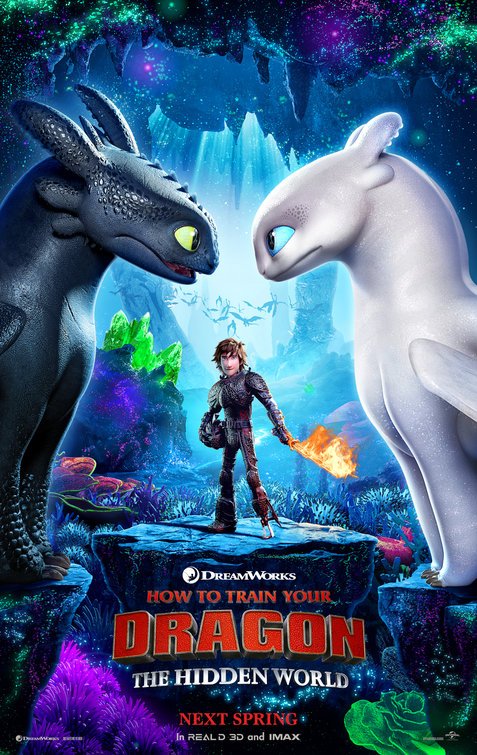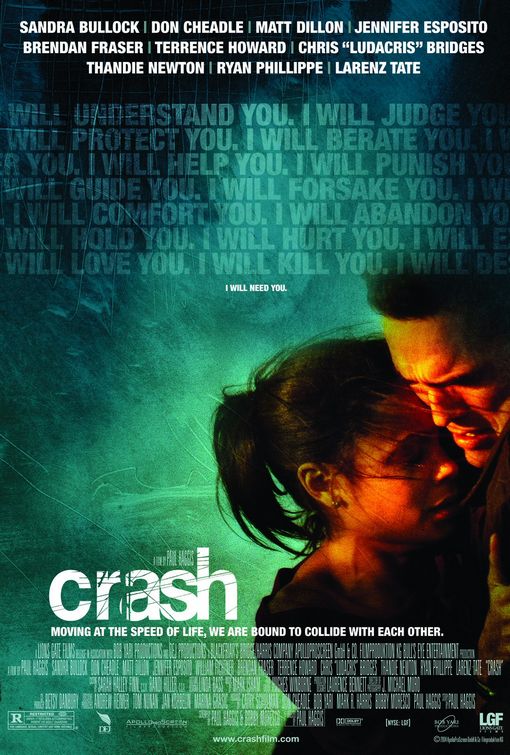“** A Captivating Look at Clashing Cultures **”

| None | Light | Moderate | Heavy | |
|---|---|---|---|---|
| Language | ||||
| Violence | ||||
| Sex | ||||
| Nudity |
What You Need To Know:
Despite a shaky start, CRASH is clearly one of this year’s best, most redemptive and ultimately uplifting movies for mature audiences. Laced with startling scenes of rare visual beauty and depth, it is also a wise, provocative movie that’s surprisingly funny and suspenseful at times. The movie takes a strong stance against many different kinds of racial conflict and racism, suggesting there is good and bad in all people. Extreme caution is advised, however, because of too much foul language, strong violence, brief sexual content, and a bit of political correctness.
Content:
(BB, C, PC, Pa, FR, LLL, VV, SS, N, A, DD, MM) Strong moral worldview with some positive Christian allusions, including a redemptive attitude toward sinful human nature, which suggests that there is bad and good in all of us, and some politically correct attitudes by the movie (mostly favoring a kind of multicultural melting pot but little if anything really offensive) and politically correct attitudes expressed by characters and in one song over end credits, but often refuted, as well as light references to Buddhism and Islam, two non-Christian religions that contain false theology; 101 mostly strong obscenities, seven strong profanities, at least three light profanities, “N” word used a few times, and middle-aged man has prostrate problems causing pain while urinating; strong, sometimes startling violence (nothing extremely bloody or gory) such as people threatened with guns, car explodes, car on fire, man shot in car but only flash of gun is seen from outside, man brandishes gun at another man but victim’s little girl jumps between them and seems to be in danger of being fatally shot, corpse with bloody T-shirt seen from medium range, police standoff between innocent victim of circumstances, carjackings, black man takes guns away from potential carjackers, woman slips and falls down stairs (fall is only heard), and movie implies that car thieves have hit man with van but man is still alive under the stolen car so they take his bleeding body to hospital and anonymously drop him off (man survives); implied scene of fornication interrupted (sounds of implied sex before phone rings), slightly crude verbal references to oral sex in one scene, suggestive comments about buying a gun in one scene, and white policeman in one scene paws black woman’s body while he searches her after she mouths off to him; upper male nudity and nudity implied during brief scene implying fornication (but nothing really revealing seems to be shown); alcohol use; smoking and implied heroin use (very tastefully done); and, miscellaneous immorality such as carjacking rebuked, scenes filled with racism that is rebuked directly and/or implicitly, white policeman intimidates black couple, a system of white racism is implied and discussed but bizarre conspiracy theories by black thief are mostly rebuked, uncontrolled rage, racial joke, mother rebukes son for not taking care of his brother and son feels shame for failing, illegal immigration not fully rebuked, bondage and slavery of illegal immigrants is rebuked, and rap song over end credits contains some political correct leftist ideology when it erroneously calls Clear Channel, a radio network that features many conservative and libertarian talk show hosts, a “monopoly” and when it says something about Americans only wanting the United States to be the one with nuclear weapons.
More Detail:
The movie is set in Los Angeles and starts with a traffic jam at night where a black police detective and his Latino girlfriend have just been rear-ended by a female Asian driver. The Latino woman and the Asian driver immediately get into a verbal war of racial slurs and mockery while the detective discovers that the traffic jam has been caused by the discovery of a dead body (exactly whose body we do not know).
The movie shifts back in time to the night before when the black detective gets assigned a case of road rage where a white undercover narcotics officer just shot and killed another man. Regrettably, the dead man turns out to be an off duty black police officer. Meanwhile, the white District Attorney and his white wife are carjacked by two black thieves in Westwood, the district surrounding the UCLA campus. The thieves have just come out of a restaurant disagreeing about the pervasive impact of white racism. One of them has a goofy bunch of paranoid conspiracy theories that the other one rejects.
Soon, the movie introduces a bevy of other characters, including an Hispanic locksmith who gets into a fight with a Persian storeowner, the locksmith’s little daughter who’s still scared about getting shot even though they now live in a nicer neighborhood, the store owner’s daughter, a black TV director and his beautiful but angry wife, a white police officer who can’t stop making racist statements, and the white police officer’s young partner who’s offended by his partner’s attitude. Misunderstandings and angry conversations between these characters set off an emotionally powerful chain of events, leading to surprising revelations and violence. Some of the revelations are about human nature, especially the ethnic and cultural barriers and sinfulness within us that can lead to uncontrolled anger, racism, reverse racism, and even violence.
CRASH is clearly one of the best, most redemptive and ultimately uplifting movies for mature audiences in 2005. In spite of a shaky start, CRASH is laced with emotional, startling scenes of rare visual beauty, depth and poetry. It is also a wise, provocative film that’s surprisingly funny and suspenseful at times. Although there are violent scenes in the movie, they are not gratuitous or terribly bloody. Instead, the movie aims for character, content and suspense in its violent scenes and violent references. Thus, the violence startles viewers a couple times, but it usually doesn’t, if ever, overwhelm the story or insult moral sensibilities. The same can’t be said, however, for the film’s foul language.
Basically, the story in CRASH is about racial conflicts in Los Angeles, but it also has something to say about the sinful nature of man. It says anyone is capable of an evil act and that good and bad exists in all of us, including heroes and villains, and would-be heroes and would-be villains.
At first, it seemed as if the movie was going to be just another leftwing Hollywood diatribe against white racists, but the movie clearly shows that racism can exist in any ethnicity or culture, or any one person. It also clearly shows that even someone filled with racial hostility can perform a redemptive act.
In doing all of this, the movie asks viewers to take a step back from their own attitudes and ask themselves what they can do to make this world a better place. Furthermore, although the movie has positive, brief references to Buddhism and Islam, it also has some positive Christian references. For example, two St. Christopher medallions play an important symbolic role in the movie.
The movie’s title is intended to mean at least two things, perhaps more. First, when the Asian woman hits their car, the black policeman tells his girlfriend that he thinks people in Los Angeles are so isolated from the touch of other people that, once in a while, they just have to crash into one another. Later, it also becomes clear that all of the characters are very close to crashing themselves, to the point of having a nervous breakdown. In both those senses, CRASH serves as a wake-up call to just about everyone on the planet.
CRASH (the film itself but not all of the characters) generally avoids silly, politically correct statements about multiculturalism or against white people. Anthony, one of the two bickering black thieves, comes up with some bizarre conspiracy theories about racial discrimination against black people, which the other thief mocks and tries to refute. Anthony tries to justify his attacks against the property of rich white people, but the movie doesn’t really let him get away with that. Anthony’s constant, hilarious bickering highlights some of the political issues about race generated by the story.
Also, however, one of the songs over the end credits is an obnoxious rap song with some politically charged comments. For instance, the singer erroneously calls Clear Channel, a radio network that features many conservative and libertarian talk show hosts, a “monopoly” and says something about Americans only wanting the United States to be the one with nuclear weapons. There is also an incident of illegal immigration that is not fully rebuked. These items show that even a movie like CRASH can’t entirely escape some of the entertainment industry’s loony leftist labels.
CRASH, however, is intelligent and provocative enough to stimulate additional argument and debate about racial conflicts, the evils of many kinds of racism and moral truth. In the final analysis, it urges everyone to “do the right thing,” although it doesn’t point to specific moral guidelines, such as the Ten Commandments, the New Testament documents or Jesus Christ’s Sermon on the Mount. It is up to us, therefore, to tell people about the wonderful moral benefits of Christianity and the Gospel of Jesus Christ. Jesus, after all, spoke out boldly against both greed and envy (see Mark 7:20-23).
The ensemble cast in CRASH does a brilliant job, which is also a credit to screenwriter and first-time director Paul Haggis. Of special note are the performances by Don Cheadle, Sandra Bullock, Matt Dillon, Chris “Ludacris” Bridges, Terence Howard, Thandie Newton, Michael Peña, and Larenz Tate.
CRASH contains an abundance of strong foul language, sexual elements in four scenes (including a raunchy police search of a beautiful black woman’s clothed body), violence, and some miscellaneous immoral behavior, such as carjacking (much of which is rebuked in one form or another). MOVIEGUIDE®, therefore, advises extreme caution for ages 17 or 18 and over.


 - Content:
- Content: 
